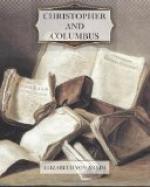They got no answer to this for three weeks, and had given up all hope and come to the depressing conclusion that they must have betrayed their want of intelligence and interestingness right away, when one day a letter came from General Headquarters in France, addressed To Both the Miss Twinklers, and it was a long letter, pages long, from the slightly wounded officer, telling them he had been patched up again and sent back to the front, and their answer to his advertisement had been forwarded to him there, and that he had had heaps of other answers to it, and that the one he had liked best of all was theirs; and that some day he hoped when he was back again, and able to drive himself, to show them how glorious motoring was, if their mother would bring them,—quick motoring in his racing car, sixty miles an hour motoring, flashing through the wonders of the New Forest, where he lived. And then there was a long bit about what the New Forest must be looking like just then, all quiet in the spring sunshine, with lovely dappled bits of shade underneath the big beeches, and the heather just coming alive, and all the winding solitary roads so full of peace, so empty of noise.
“Write to me, you two children,” said the letter at the end. “You’ve no idea what it’s like getting letters from home out here. Write and tell me what you do and what the garden is like these fine afternoons. The lilacs must be nearly done, but I’m sure there’s the smell of them still about, and I’m sure you have a beautiful green close-cut lawn, and tea is brought out on to it, and there’s no sound, no sort of sound, except birds, and you two laughing, and I daresay a jolly dog barking somewhere just for fun and not because he’s angry.”
The letter was signed (Captain) John Desmond, and there was a scrawl in the corner at the end: “It’s for jolly little English kids like you that we’re fighting, God bless you. Write to me again soon.”
“English kids like us!”
They looked at each other. They had not mentioned their belligerent ancestry in their letter. They felt uncomfortable, and as if Captain Desmond were fighting for them, as it were, under false pretences. They also wondered why he should conclude they were kids.
They wrote to him again, explaining that they were not exactly what could be described as English, but on the other hand neither were they exactly what could be described as German. “We would be very glad indeed if we were really something,” they added.
But after their letter had been gone only a few days they saw in the list of casualties in The Times that Captain John Desmond had been killed.
And then one day the real solution was revealed, and it was revealed to Uncle Arthur as he sat in his library on a wet Sunday morning considering his troubles in detail.
Like most great ideas it sprang full-fledged into being,—obvious, unquestionable, splendidly simple,—out of a trifle. For, chancing to raise his heavy and disgusted eyes to the bookshelves in front of him, they rested on one particular book, and on the back of this book stood out in big gilt letters the word




